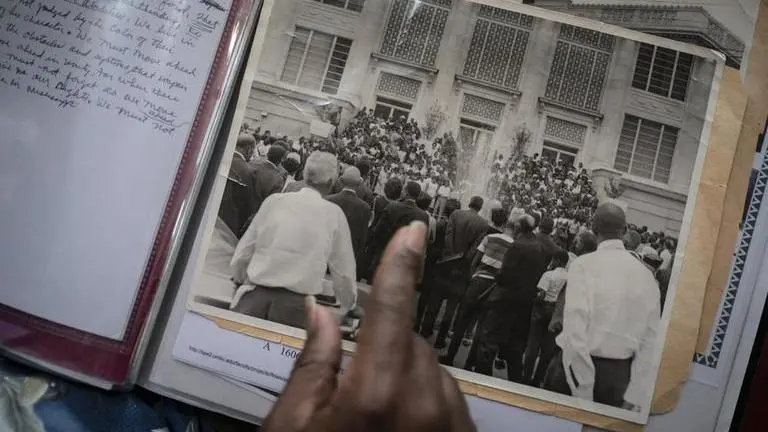Updated 22 October 2020 at 10:47 IST
In Mississippi, Black voters face many hurdles
Charles Johnson fought so hard back in the '60s as a civil rights worker. He'd seen the wreckage of burned churches, and the injuries of people who had been beaten. He'd seen men in white hoods. At its worst, he'd mourned three young men who were fighting for Black Mississippians to gain the right to vote, and who were kidnapped and executed on a country road.
- World News
- 3 min read

Charles Johnson fought so hard back in the '60s as a civil rights worker. He'd seen the wreckage of burned churches, and the injuries of people who had been beaten. He'd seen men in white hoods. At its worst, he'd mourned three young men who were fighting for Black Mississippians to gain the right to vote, and who were kidnapped and executed on a country road.
But Johnson, sitting inside the neat brick church in Meridian where he's been pastor for over 60 years, worries that Mississippi is drifting into its past.
"I never would have dreamed it - that we'd be at the same spot that we were 50 years ago," said Johnson, 83, who was close to two of the murdered men, especially the New Yorker everyone called Mickey. "I would have never believed it."
The opposition to Black votes in Mississippi has changed since the 1960s, but it hasn't ended. There are no poll taxes anymore, no tests on the state constitution. But on the eve of the most divisive presidential election in decades, voters face obstacles such as state-mandated ID laws that mostly affect poor and minority communities and the disenfranchisement of tens of thousands of former prisoners.
Advertisement
By at least one measure, it's harder to vote in Mississippi than any other state. And despite Mississippi having the largest percentage of Black people of any state in the nation, a Jim Crow-era election law has ensured a Black person hasn't been elected to statewide office in 130 years.
Mississippi has broad restrictions on absentee voting, no early voting or online registration, absentee ballots that must be witnessed by notaries and voter ID laws that overwhelmingly affect the poor and minorities, since they are less likely to have state-approved identification. The restrictions have grown even tighter since a 2013 Supreme Court decision blocked many voting rights protections.
Advertisement
Mississippi also has widespread poverty - nearly one-third of Black people here live below the poverty line, more than double the rate of white people. That means taking a day off work to vote can be too expensive.
Then there are the felony voting restrictions, which in Mississippi have disenfranchised almost 16% of the Black population, researchers say. The Southern Poverty Law Center calls the restrictions a holdover from an old state constitution designed specifically to disenfranchise Black voters. In nearby Missouri, another deeply Republican state, felony restrictions have disenfranchised just 5% of Black voters, according to the Sentencing Project.
Published By : Associated Press Television News
Published On: 22 October 2020 at 10:47 IST
